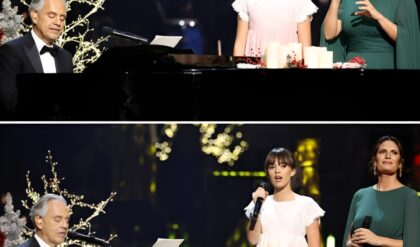In a candid and self-deprecating revelation that has reignited discussions about the highs and lows of Hollywood stardom, Kristen Stewart has opened up about her filmography, admitting that most of the movies she’s made fall short of her own standards. Speaking in a 2021 interview with The Sunday Times while promoting her role as Princess Diana in Spencer, the then-31-year-old actress confessed, “I’ve probably made five really good films, out of 45 or 50 films? Ones that I go, ‘Wow, that person made a top-to-bottom beautiful piece of work!'” Stewart’s blunt assessment, describing the filmmaking process as a “total crapshoot,” highlights the unpredictable nature of the industry and her frustration with projects that don’t live up to their potential. “The worst is when you’re in the middle of something and know that not only is it probably going to be a bad movie, but we’re all bracing until the end,” she added, painting a picture of on-set disillusionment that resonates with many in the business.
This admission, resurfacing amid Stewart’s continued evolution as an actress and director, offers a rare glimpse into the mind of one of Hollywood’s most enigmatic figures. Known for her breakout role in the Twilight saga, which catapulted her to global fame but also typecast her for years, Stewart has since carved out a niche in indie cinema, earning critical acclaim for films like Clouds of Sils Maria (2014) and Personal Shopper (2016). Yet, her honesty about the “crap” in her resume underscores a career marked by bold choices, commercial pressures, and personal growth. As she turns 37 this year, with projects like Love Lies Bleeding (2024) and her directorial debut The Chronology of Water on the horizon, Stewart’s reflection serves as a testament to her resilience and commitment to artistic integrity. In this in-depth exploration, we’ll delve into Stewart’s career trajectory, the films she likely considers her “good” ones, the challenges of navigating Hollywood, and why her candidness continues to endear her to fans and critics alike.
Kristen Stewart’s Early Years: From Child Actor to Teen Sensation
Kristen Jaymes Stewart was born on April 11, 1988, in Los Angeles, California, into a family deeply rooted in the entertainment industry. Her father, John Stewart, is a stage manager and television producer, while her mother, Jules Mann-Stewart, is a script supervisor and director. Growing up on film sets, Stewart was discovered at age 8 during a school Christmas play, leading to her first role in the Disney Channel movie The Thirteenth Year (1999). Her breakthrough came at 12 with Panic Room (2002), where she held her own opposite Jodie Foster as a diabetic daughter trapped in a home invasion. Critics praised her natural talent, with Roger Ebert noting, “Stewart is a find; she’s able to convey intelligence and vulnerability.”
The early 2000s saw Stewart in a mix of indie and mainstream projects, including Speak (2004), a TV movie about a teen dealing with sexual assault, which showcased her dramatic depth, and Into the Wild (2007), directed by Sean Penn, where her role as Tracy Tatro earned acclaim for its authenticity. But it was the Twilight saga (2008–2012) that transformed her into a global superstar. Cast as Bella Swan opposite Robert Pattinson’s Edward Cullen, Stewart navigated the frenzy of “Twi-hard” fans and intense media scrutiny. The series grossed over $3.3 billion worldwide, but Stewart has since distanced herself, calling it “such a gay movie” in a 2024 Variety interview, reflecting on its queer undertones.
The Twilight era was a double-edged sword: financial success came with typecasting and personal turmoil. Stewart’s highly publicized relationship with Pattinson, and her 2012 affair with Snow White and the Huntsman director Rupert Sanders, led to a media storm that she later described as “traumatizing.” “I was so young and didn’t understand the impact,” she told Howard Stern in 2019. These experiences shaped her guarded persona and push toward more challenging roles.
The “Five Really Good Films”: Stewart’s Self-Assessment
Stewart’s admission that she’s only made “five really good films” out of 45 or 50 invites speculation about which ones make the cut. While she didn’t name them in the interview, her career highlights offer clues. First, Clouds of Sils Maria (2014), directed by Olivier Assayas, where Stewart played Valentine, assistant to Juliette Binoche’s aging actress. The film earned her a César Award—the first American woman to win France’s equivalent of an Oscar— for her nuanced portrayal of ambition and identity. Critics hailed it as a turning point, with The Guardian calling her performance “mesmerizing.”
Second, Personal Shopper (2016), another Assayas collaboration, saw Stewart as Maureen, a medium grappling with grief. The psychological thriller divided audiences but won her rave reviews for its haunting intensity. “It’s one of my proudest,” Stewart said in 2017. Third, Certain Women (2016), Kelly Reichardt’s anthology, featured Stewart as a night class teacher in a subtle, emotionally rich segment. Fourth, Spencer (2021), Pablo Larraín’s portrayal of Princess Diana, earned Stewart her first Oscar nomination. Her embodiment of Diana’s isolation was “transformative,” per Variety.
The fifth? Perhaps Adventureland (2009), Greg Mottola’s coming-of-age comedy, where her role as Em showcased early depth, or Still Alice (2014), supporting Julianne Moore’s Oscar-winning performance. Stewart’s criteria seem rooted in creative fulfillment: “Ones where I go, ‘Wow, that person made a top-to-bottom beautiful piece of work!'” This honesty reflects her disdain for mediocrity, as she lamented projects where “you’re in the middle and know it’s going to be bad.”
Navigating Hollywood’s “Crapshoot”: Challenges and Growth
Stewart’s “crapshoot” comment exposes the industry’s unpredictability. “It’s a total gamble,” she said, describing the dread of realizing a film’s flaws mid-production. This resonates with actors like Robert Pattinson, who called Twilight “weird,” or Emma Watson on Harry Potter pressures. For Stewart, early fame amplified scrutiny—her Twilight expressions were mocked as “wooden,” leading to self-doubt. “I was so self-conscious,” she told The Sunday Times.
Post-Twilight, Stewart sought indie roles to reclaim agency, collaborating with directors like Assayas and Reichardt. Her coming out as queer in 2017 on Saturday Night Live—”I’m, like, so gay, dude”—marked personal liberation, influencing choices like Happiest Season (2020), Hulu’s first major LGBTQ+ holiday rom-com. Yet, she acknowledges flops like Charlie’s Angels (2019), which underperformed despite her enthusiasm.
Stewart’s directorial ambitions, including The Chronology of Water, show her desire for control. “I want to make movies that matter,” she said. Her net worth, over $70 million, affords selectivity, but she remains grounded, advocating for gender equality and mental health.
Legacy and Future: A Career of Authenticity
Stewart’s admission humanizes her, endearing her to fans who appreciate her unfiltered honesty. Social media reactions praise her: “Kristen’s realness is why we love her,” tweeted @FilmBuff88. As she promotes Love Lies Bleeding (2024), a queer thriller with Katy O’Brian, and prepares her directorial debut, Stewart’s reflection reminds us that even stars grapple with self-criticism.
In an industry of facades, Stewart’s candor stands out. Whether five “good” films or more, her impact—from Bella Swan to Princess Diana—is undeniable. As she evolves, her “crapshoot” philosophy inspires aspiring artists: not every project shines, but the pursuit of greatness endures.





